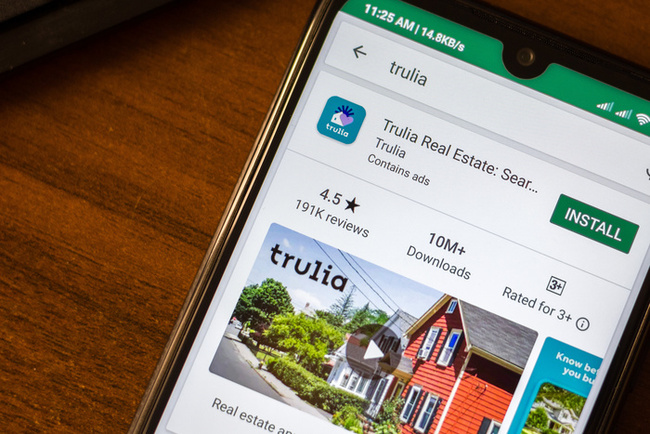Rent
Checklist: Everything you need to check before renting a house!
Renting a property can be a challenge! That's why we've created a checklist to teach you everything you need to check before renting a house. Learn how to identify abusive clauses, hidden costs and property conditions.
Advertisement
Avoid Unpleasant Problems Before Closing the Contract

Renting a house may seem like a simple process, but it requires attention to many details to avoid headaches in the future. And know what to check before renting a house is essential to ensure that the chosen property meets your expectations and needs.
However, many people make this decision impulsively, focusing only on the price or appearance of the property. But, in addition to these factors, it is important to consider other issues.
There are additional fees, moving expenses and possible repairs that can affect your budget. Therefore, it is crucial to analyze all financial aspects before signing a contract.
With this in mind, we have prepared a detailed checklist to help you make an informed decision. Follow this guide and ensure a safe and regret-free rental.
1. Define your needs and budget
The first point that should not be forgotten is: Before you start looking for a property, be clear about what you really need!
Doing this will prevent you from wasting your time on things that aren’t aligned with your desires, avoid unnecessary visits, and help you filter the best options. So, ask yourself:
- How many bedrooms and bathrooms are needed?
- Need extra space for an office or leisure area?
- Do you prefer a furnished or unfurnished property?
- Do you have pets? Does the house need to be pet-friendly?
Once you’ve set your priorities, set a budget. Ideally, rent shouldn’t exceed 30% of your monthly income, so you have room for other essential expenses.
2. Evaluate the location of the property
Where you live has a direct impact on your routine and quality of life. Therefore, before choosing a home, consider the following factors:
Neighborhood safety should be one of the first things you should consider. Check crime rates, talk to residents, and visit the area at different times to observe the movement in the area.
Poorly lit neighborhoods or those with a history of robberies can compromise your peace of mind.
Also, check the local infrastructure. Having markets, pharmacies, schools and hospitals nearby makes everyday life much easier. Depending on your needs, proximity to public transport or easily accessible roads can also be a decisive factor.
Neighborhood quality and future projects
Another important point is the quality of the neighborhood. A quiet street may be ideal for those who value peace and quiet, while areas with bars and frequent parties may not be the best option for those seeking more privacy.
Finally, also see if there are future urbanization projects that could increase or decrease the value of the neighborhood.
Major construction projects, building construction or new commercial establishments can impact traffic and tranquility in the area.
3. Inspect the condition of the property
Before signing the contract, do a thorough inspection and write down everything you find. Some critical points to look for include:
- Walls and ceiling: Cracks, leaks and mold can indicate structural problems or leaks.
- Electrical installation: Test outlets and switches to see if there are any points that are not working.
- Hydraulics: Open taps and toilets to check water pressure and for leaks.
- Openings: Doors and windows must open and close without difficulty and be in good condition.
If the property is furnished, test appliances and furniture, ensuring that everything is working properly.
4. Analyze the lease agreement
The lease agreement is a fundamental document that defines the rights and duties both the landlord and the tenant.
In the United States, rental rules may vary from state to state, so it is essential to read all clauses carefully to avoid future problems.
Before signing, please check the following essential points:
Contract duration and renewal
The first aspect to consider is the term of the contract. Contracts generally follow two main formats:
- Fixed contract – Usually lasting for 12 months, but can vary between 6 and 24 months. The tenant undertakes to remain in the property during this period.
- Monthly contract – Greater flexibility, allowing the tenant or landlord to terminate the contract with 30 days notice. However, the rent may be adjusted more frequently.
If you intend to stay in the property for a longer period, choose contracts. 12 months or more, as they tend to offer greater stability in the rental value.
If you need flexibility, a monthly contract may be more advantageous.
Penalty for early termination
If you need to leave the property before the end of the contract, fines or penalties may apply. The most common rules include:
- Rent payment until the end of the contract, if the landlord does not find another tenant quickly.
- Fixed fine equivalent to 1 or 2 months rent.
- Possibility of subletting, as long as it is approved by the landlord.
If there's a chance you'll need to move out early, try to negotiate more flexible terms to avoid excessive penalties.
Responsibilities of the landlord and tenant
The contract must also specify who is responsible for maintenance and repairs. Key points include:
- Structural maintenance and major repairs – Typically the landlord’s responsibility. This includes leaks in the structure, heating problems, electrical wiring and main pipes.
- Minor repairs and daily maintenance – Generally, the tenant must pay for minor repairs, such as changing light bulbs, cleaning air conditioning filters and maintaining household appliances.
- Lawn Mowing and Gardening – If the house has a yard, see if lawn maintenance is your responsibility or the landlord’s.
- Pest control – In some contracts, the landlord takes care of this; in others, the tenant must hire services on their own.
If there is any clause that seems unfair or confusing, negotiate it before signing.
Rent adjustment method
It is also worth remembering that the rental value can be adjusted according to the market. The contract must specify:
- Whether the rent will be adjusted annually and in what percentage.
- If there is a limit to increases, especially in cities like New York, San Francisco and Los Angeles.
- If there is prior notice for adjustments, usually of 30 to 60 days before contract renewal.
If the rent can be increased freely, try to negotiate a maximum ceiling for adjustments during the period of the contract.
Additional clauses and extra fees
In addition to rent, check if the contract mentions additional costs, such as:
- Application Fee – Fee charged during the tenant approval process.
- Late Payment Fee – Fine applied in case of late payment.
- Pet Fee or Pet Deposit – Extra fee for those with pets.
- Move-in/Move-out Fee – Some properties charge a fee for tenants to move in and out.
If there are excessive charges, negotiate to reduce or eliminate them.
5. Negotiate terms and conditions
Many tenants are unaware that it is possible to negotiate not only the rental value, but also fees, terms and extra benefits. To get a more advantageous contract, follow these strategies:
Search for the average value in the region
Before trading, consult Zillow, Trulia, and HotPads to compare prices of similar properties. To do so, tap the button below.
If the rent is above average, present this data to the landlord as an argument for a discount.
Prove that you are a trustworthy tenant
Landlords look at your credit score (above 650 is ideal), proof of income (minimum of 3x the rent) and rental history. Having a good track record can help ensure better contract terms.
Negotiate benefits beyond rent
If the amount cannot be reduced, try to get advantages such as:
- Exemption from initial fees (application fee, pet deposit).
- Grace period before you start paying rent.
- Minor repairs or improvements before the change.
Choose the right time to negotiate
THE autumn and winter These are periods of low demand, making landlords more flexible. If possible, schedule your move during these times.
Record everything in writing
All agreed conditions, such as discounts or repairs, must be included in the contract. Never rely solely on verbal promises.
In short, trading can generate significant savings and better housing conditions. Prepare yourself, present solid arguments and secure a more favorable contract!
6. Understand payment methods and billing policies
The payment methods for rent and the rules for charging can vary greatly. So, before signing the contract, there are a few things you need to check:
1. Accepted payment methods
- Direct debit – Most common method to avoid delays.
- credit card – Some real estate agencies accept them, but they may charge extra fees.
- Personal check – Still used, mainly in direct rentals with owners.
- Payment apps (Zelle, Venmo, PayPal) – Some platforms allow payments, but check possible fees.
3. Discounts and benefits for early payment
- Some landlords offer discounts for paying rent before the due date.
- Others allow reduction in value for those who pay several months' rent in advance.
4. How to avoid problems with payments?
- Set up automatic payments to avoid forgetfulness.
- Have a reserve fund to cover the rent in case of unforeseen circumstances.
- Keep all payment receipts as evidence in case of disputes.
To know How payment and fine policies work avoids financial problems and ensures a good history as a tenant, making future rentals easier!
Conclusion
In short, knowing what to check before renting a house is essential to ensure you make a safe and regret-free choice.
Therefore, from the analysis of the location to the final inspection, every detail matters to avoid unpleasant surprises.
By following this checklist, you will be better prepared to negotiate, identify potential problems and ensure that the property you choose is suitable for your needs.
And now that you know what to check before renting a house, check out the next article, where we talk about How to Buy a Luxury Mansion! This could be the first step towards acquiring yours…

How to Buy a Luxury Mansion
Check out the article How to Buy a Luxury Mansion and take the first step towards your new home!
Trending Topics

Say Goodbye to Abusive Rent! Discover VivaReal to rent Houses and Apartments at Fair Prices
Find the ideal property on Viva Real! See how this platform revolutionizes the search for properties. Read now and find out more!
Keep Reading
Where to Rent Houses in Brazil: Best Options and Essential Tips
Want to know where to rent houses in Brazil? Discover the essential platforms and tips to ensure a safe rental. Read now!
Keep Reading
Want to Buy a Property? Banco do Brasil Has the Perfect Conditions for You!
Find out everything about Banco do Brasil Financing, from the available options to tips for responsible financing. Check it out now!
Keep ReadingYou may also like

Cofidis quick loan: up to €30,000 with a response within 24 hours!
Discover how the Cofidis quick loan can put money in your account in hours, safely, simply, and with complete transparency.
Keep Reading
The Best Value! Find Amazing Affordable Home Rentals on Trulia
Find your ideal home on Trulia! Compare properties, explore neighborhoods, and find the best home for you using this platform!
Keep Reading
Find the perfect place to stay on Vrbo and make your trip more special!
Discover how the Vrbo platform can help you find the ideal home for temporary or official rental.
Keep Reading